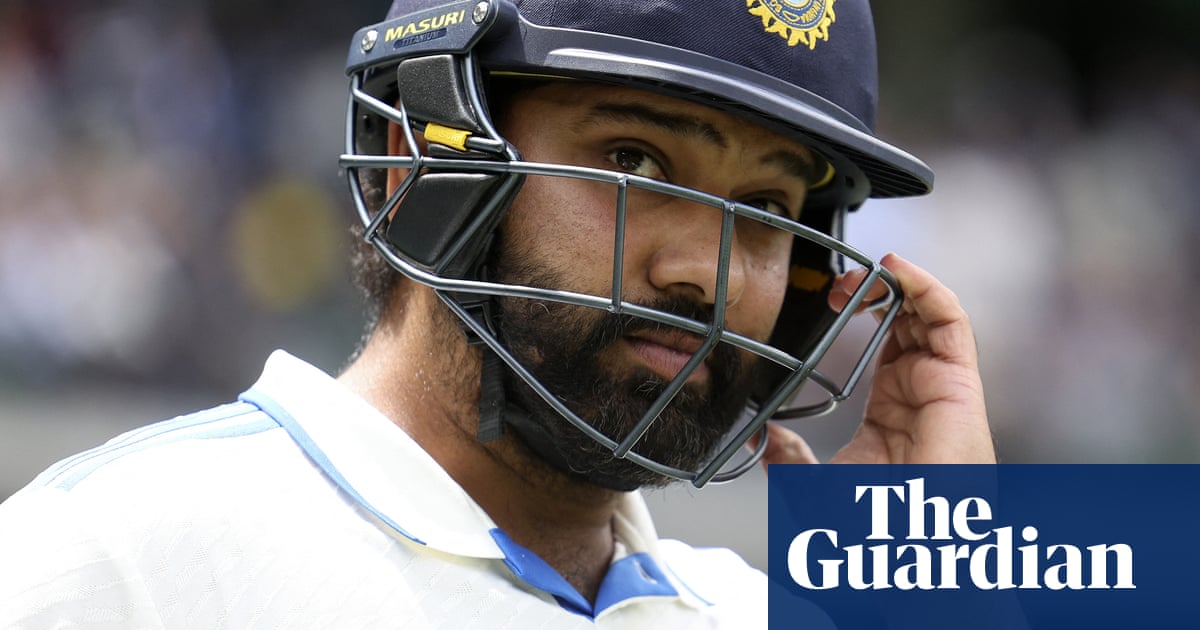Rohit Sharma has retired from Test cricket, his announcement coming hours after reports emerged that he was to lose India’s red-ball captaincy. The 38-year-old, who quit T20 international cricket after leading India to victoryat last year’s World Cup, will continue to represent his country in one-day internationals.
“Hello everyone, I would just like to share that I am retiring from Test cricket,” Rohit posted on Instagram. “It’s been an absolute honour to represent my country in whites. Thank you for all the love and support over the years. I will continue to represent India in the ODI format.”
Reports in the Indian media suggested national selectors were set to appoint a new captain for next month’s five-Test series in England, the first of a new World Test Championship cycle, due to concerns about Rohit’s form.
In his last three series Rohit averaged 10.50 in two games against Bangladesh, 15.16 in three matches against New Zealand, in which India were whitewashed 3-0, and 6.20 in three games in Australia.
Though Jasprit Bumrah captained India in the two games Rohit missed in Australia the 25-year-old batter Shubman Gill is considered the most likely long-term replacement.
Rohit retires with a career average in Tests of 40.57 but in eight appearances over the past 12 months he averaged 10.93 with a high score of 52, a run that culminated with him dropping himself from the fifth and final Test of their series in Australia.
Rohit was named captain in 2022 after the resignation of Virat Kohli, and led the team in 24 matches, winning half. There had been no indication that he was planning to retire before doubts emerged on Wednesday about his future as captain.
Last month he looked ahead to the England series on Beyond 23, a podcast presented by the former Australia cricketer Michael Clarke, saying that if his key bowlers were fit “we will have a great season. I know the cricket [England] are playing these days, so it’ll be a good challenge for us.”
Sign up toThe Spin
Subscribe to our cricket newsletter for our writers' thoughts on the biggest stories and a review of the week’s action
after newsletter promotion
The Indian Expressquoted an unnamed source at the Board of Control for Cricket in India saying: “The selectors’ thought process is clear. They want a new leader for the England tour and Rohit doesn’t fit in as a captain, especially considering his red-ball form. They want to groom a young leader for the next Test cycle and the selection committee has informed the BCCI that Rohit won’t lead the team.”
Gautam Gambhir, India’s coach across all three international formats, was asked on Tuesday about Rohit’s potential retirement. “When you start and when you end is your individual decision,” he said. “No coach, no selector, no BCCI can tell you when you should call it quits. If you perform, you can jolly well play till 45, who’s stopping you?”
